Post Caesarean Care: Healthcare, Midwifery, and Patient Wellbeing
VerifiedAdded on 2022/10/02
|5
|809
|380
Homework Assignment
AI Summary
This assignment examines the comprehensive care provided to mothers following a caesarean section, emphasizing the crucial role of healthcare professionals, including nurses and midwives. The post-operative care involves regular monitoring of vital signs such as blood pressure, heart rate, and pain levels, along with the administration of analgesics to manage pain. The assignment also highlights the importance of catheter maintenance to prevent infections, physiotherapy to aid physical recovery, and debriefing sessions to prepare mothers for the emotional and physiological changes post-pregnancy. Furthermore, the assignment explores the support midwives offer during the postpartum period, addressing emotional, mental, and physical well-being, including counseling for post-partum depression and assistance with infant care. The document references research on pain management, the role of midwives, and the overall healthcare approach to support both mother and child after a caesarean delivery.
1 out of 5
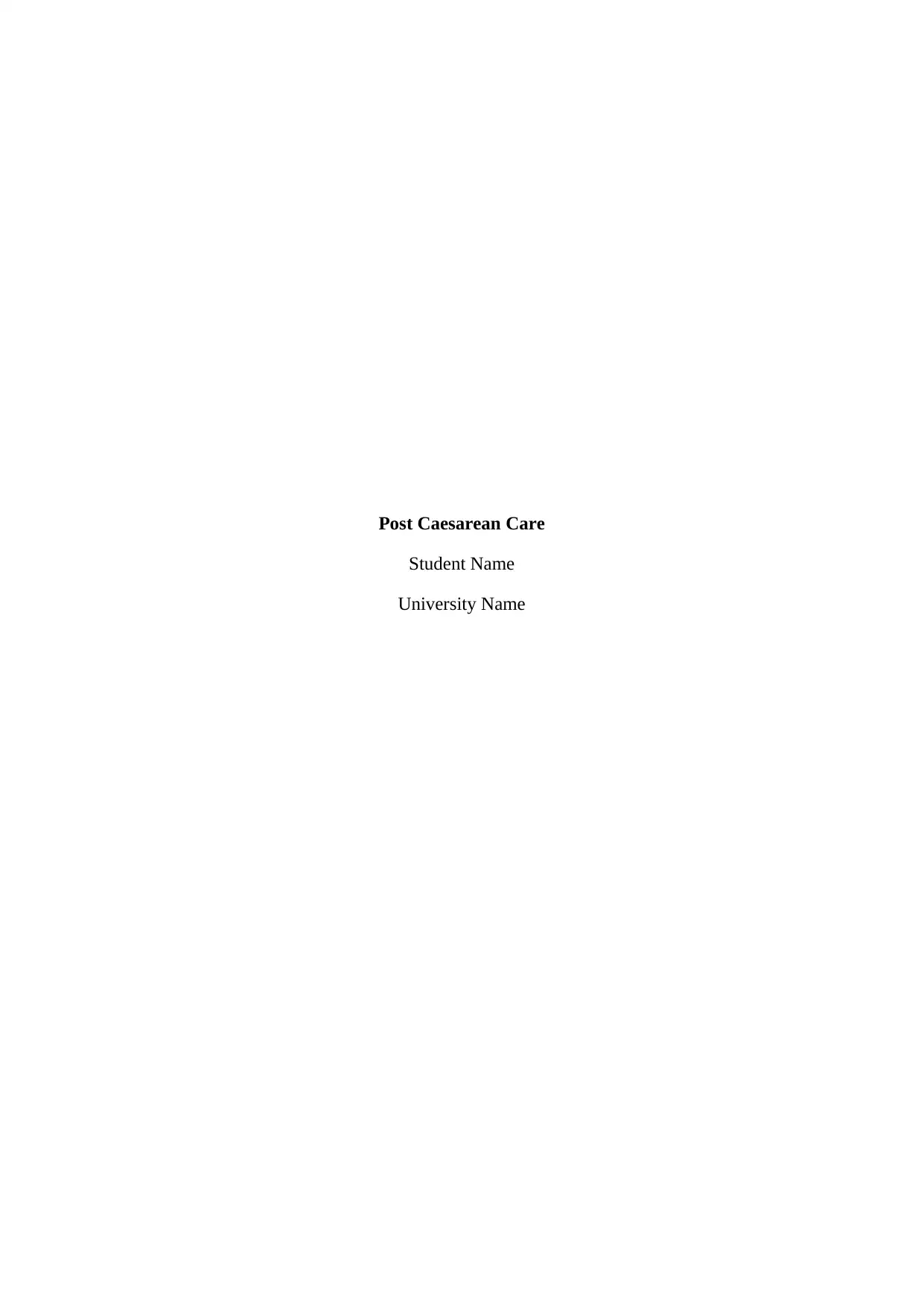
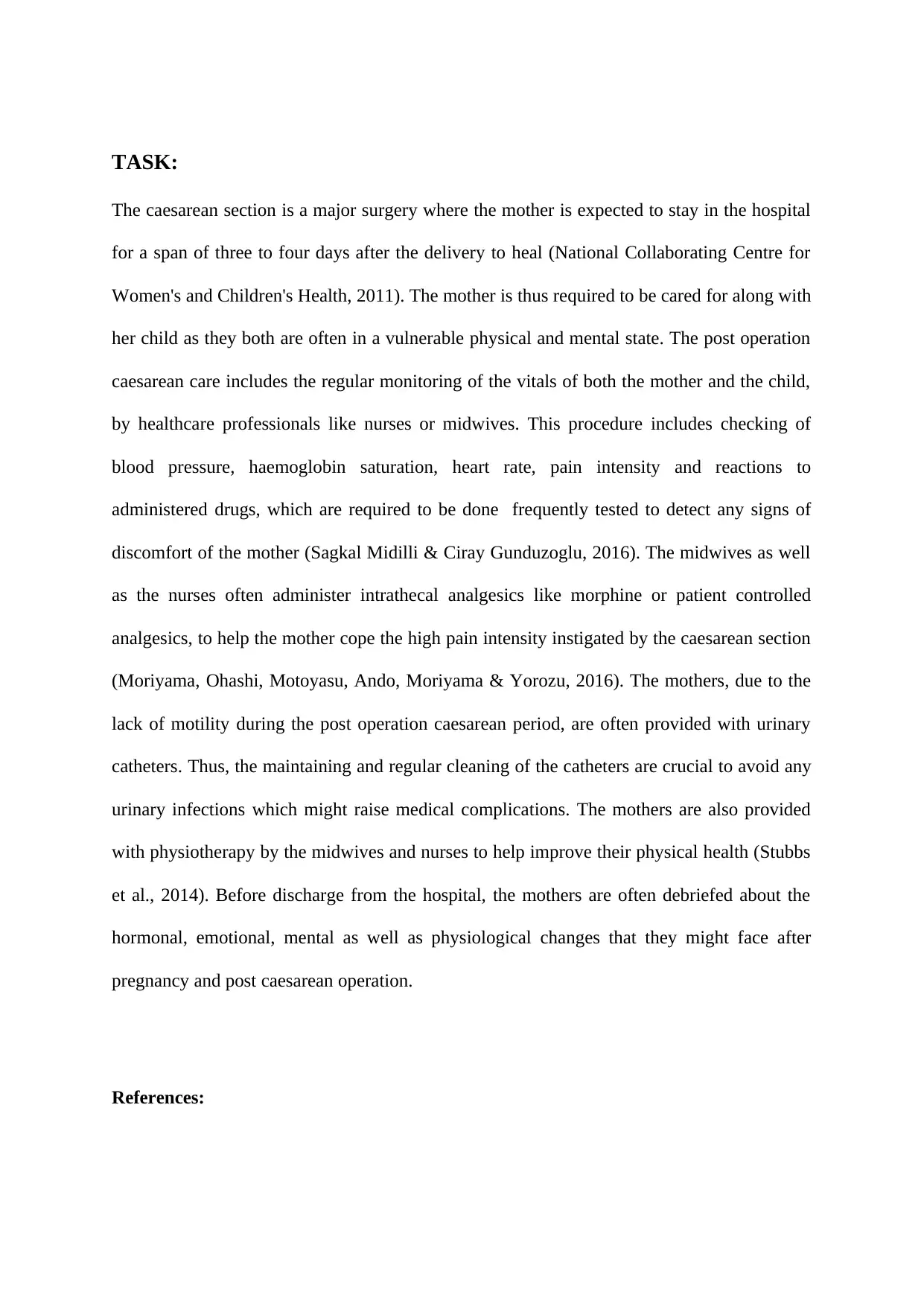
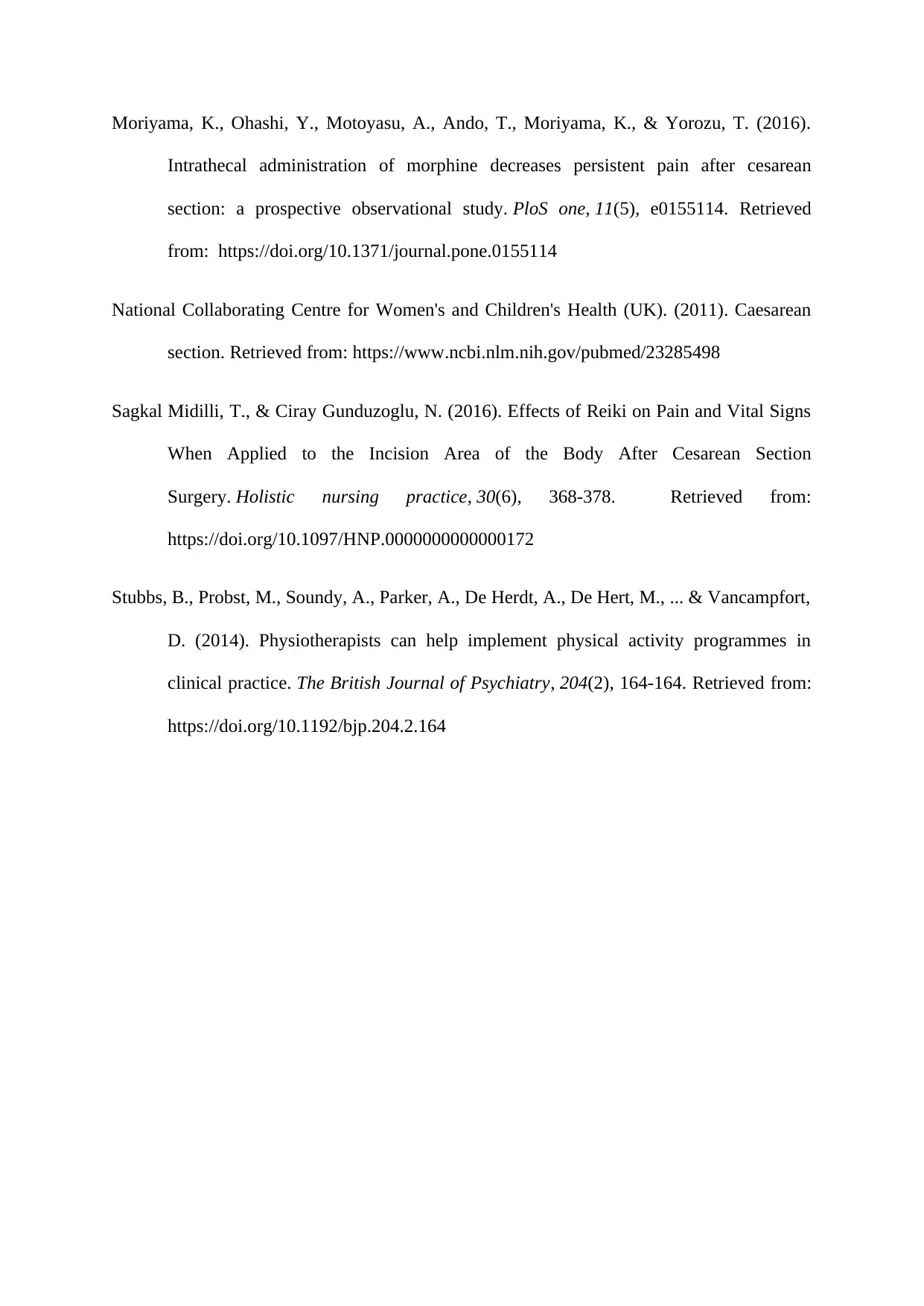

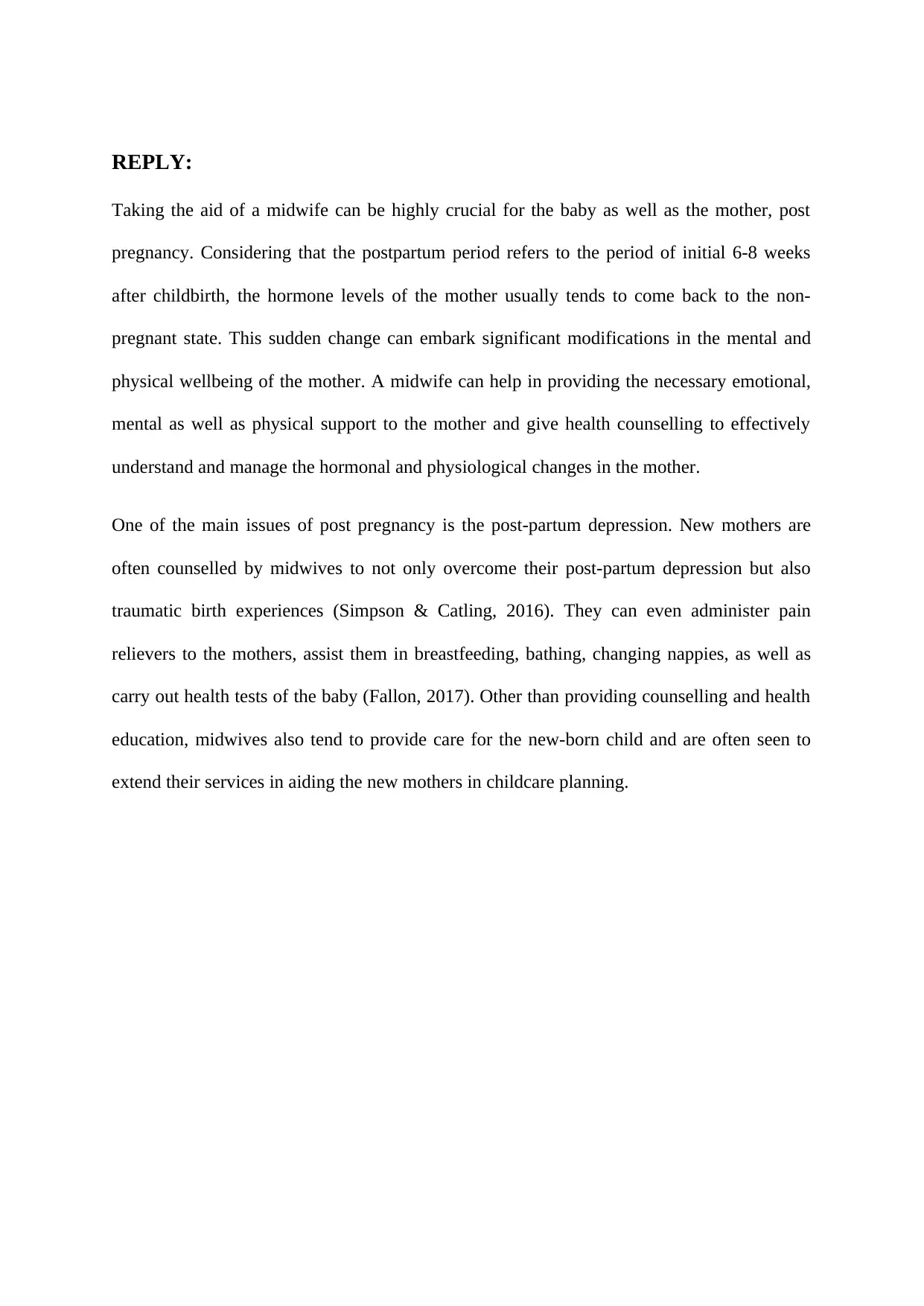
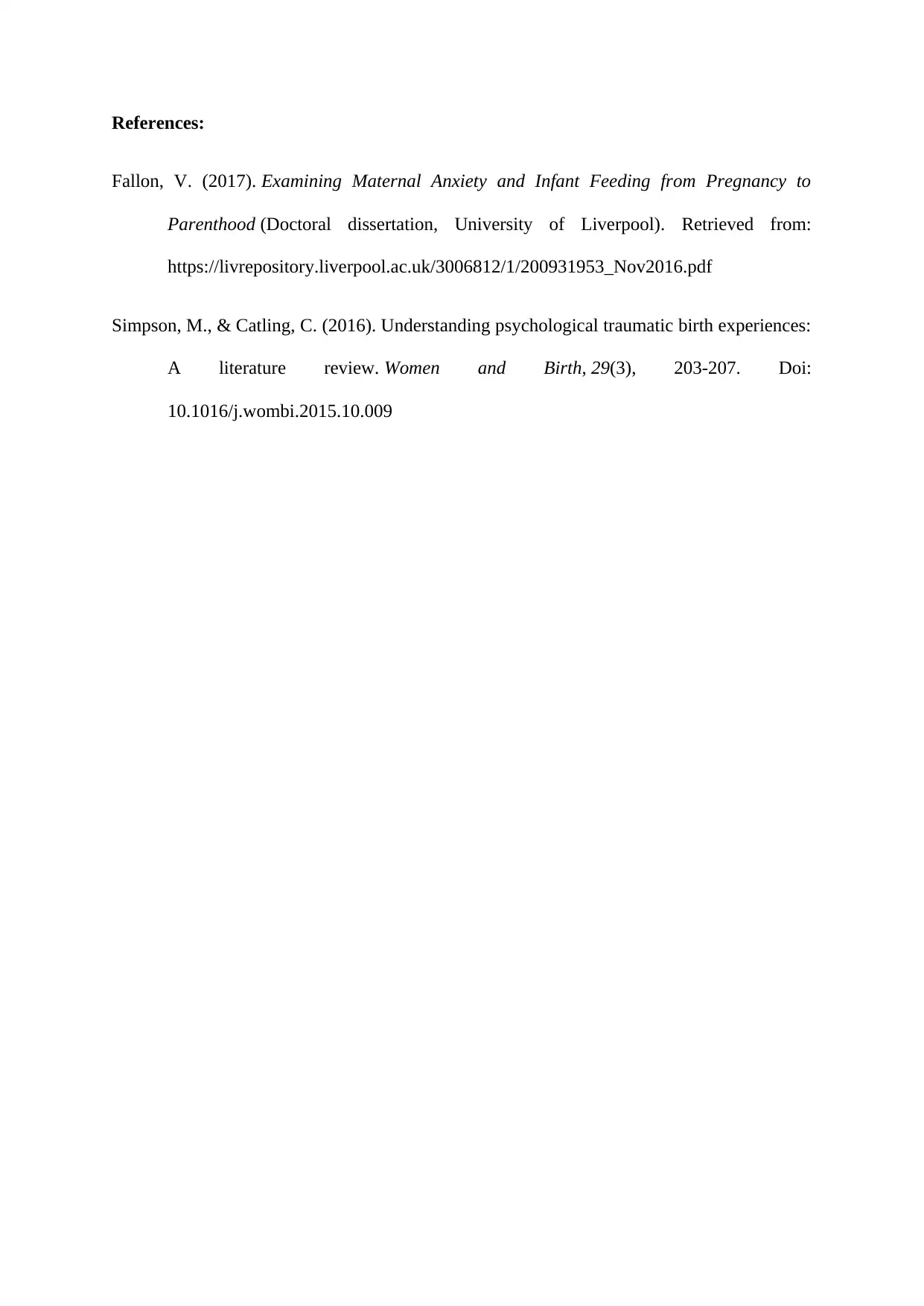
![[object Object]](/_next/static/media/star-bottom.7253800d.svg)